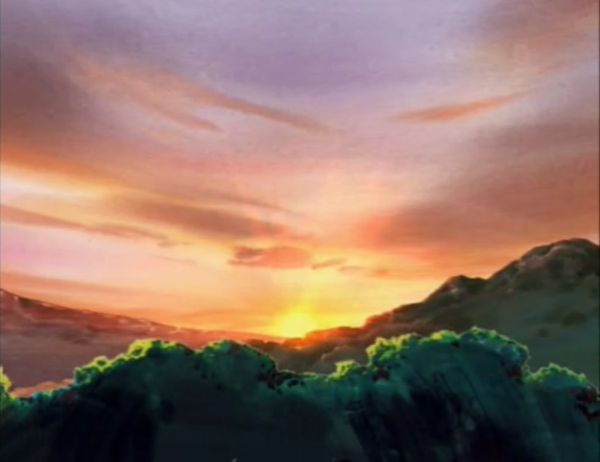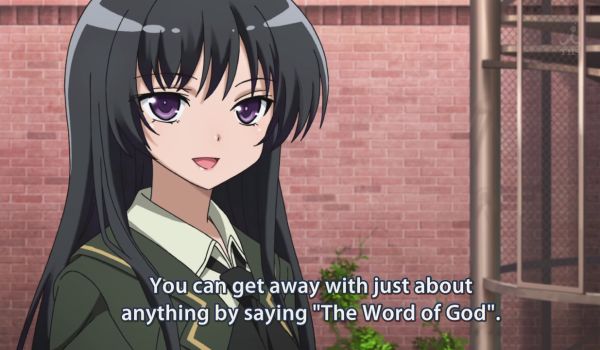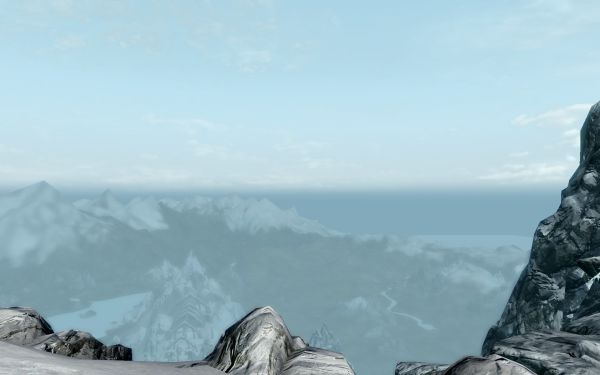
A magical world, still in the process of being defined into its true form.
This is a bunch of internal notes for one of my fantasy stories, so it is only of interest for the extremely curious with a particular penchant for that kind of literature, I guess. Still, if I am writing it anyway, I may as well write it here in case that combination of interest really exists out there. There are 7 billion people in the world, after all.
***
So, Oktagonien. It is the name that corresponds to Earth in this particular story. Actually it has many different names in different languages, but the Emperors (human visitors) call it Oktagonien because they reach it through a pattern consisting of two octagons one inside another, each with different markings. In The 1001st Book (which will probably have a different name if I work long enough on this since I already used that name in the Thoth story), the two octagons are depicted side by side. Only by drawing the smaller inside the larger can you open the path to Oktagonien. And the book is only given to one person at a time, well at least recently.
Unfortunately you cannot travel back the same way, so you cannot return to Earth – and the universe Earth is in – without learning the Secret of the Return, which will typically take many years. The current visitor, however, somehow passed through the octagon first in his dream, which means he returns to the more real world when he wakes up. That, however, is not often.
Time flows differently in Oktagonien. A rough approximation is that it moves one thousand times as fast, so one year on Earth is 1000 years in Oktagonien. (It is probably 1024, if we use astronomical years and ignore the whole leap year thing.) Oktagonien was created by ascended humans (or the metaphysical equivalent) in a sister universe of ours (or rather of the main character’s), so Oktagonien is basically a niece universe. As such, it is less real, more fluid, more magical, more random, and more malleable. And time flows much faster, like in a dream. In fact, in a certain sense it is a dream, but it feels quite real when inside it. Then again, so do dreams.
One day (24 hours) on Earth is approximately 2.8 years in the world of Oktagonien, so if you sleep for a bit over 8 hours you’d spend a year inside Oktagonien.
The inhabitants of Oktagonien are furries, anthropomorphic animals. Or at least that is the case now and on the twin continent, where our hero lands. The western continent is inhabited by dog-people, who are strong and brave and quite social. Their southern subcontinent is inhabited by mouse-people, who are pygmies, but the smartest of the three races. East of the strait is the continent of the cat-people. In the frozen lands to the north and on mountain ranges live the spider-people, who are not all that spidery really but have some traits that may remind one of spiders, like four long, thin arms and four eyes, three in front and one in the back of the head.
The previous hero, the New Emperor, is the hero of the book our main character reads before travelling to Oktagonien. Inside Oktagonien, the New Emperor arrived a bit over 2000 years ago, so the book must be no more than two years old. He saved the furries from a large-scale invasion of the spider people, who had been unknown in the lands before. The spiders still live in the north, but are no longer considered a threat.
The spider invasion happened after the three races bombed each other back to the stone age in the Great War of Destruction, some 2500 years ago. The Great War was followed by a century of chaos, where people fought over magical artifacts from the past but ended up killing the only people who knew how to maintain them or even use them. After this they got used to living in the stone age, and the population was just beginning to bounce back when the spiders arrived with their superior alchemy and enslaved the furries. The spiders are very sensitive to heat and cannot stay long in the south or in the lowlands without constantly using potions to cool themselves down. Now that they no longer have a monopoly on alchemy, they live only in the coldest parts of the land and give no trouble.
Before the Great War of Destruction was what the book calls the Age of Legends, but which is now called the Age of Myth. The current Age of Legend is the rule of the New Emperor, which common people have already taken to be identical to the Eternal Emperor, who lived in the era before the Great War. He was called so because he ruled for several hundred years. When he left, however, his empire only lasted for a few generations before the civil war destroyed it.
The current hero, the New Emperor and the Eternal Emperor were all humans from Earth, and speaking English. However, the furries speak their own languages which our hero magically learns in a couple days, what with him being a moderately supreme being in this lower world.
Only about 500 years passed between the leaving of the Eternal Emperor and the coming of the New Emperor, so it is perhaps not so strange that people 2000 years later begin to think they were the same person. The Eternal Emperor arrived some 3500 years ago. He forged the Empire and raised civilization to a very high level, but evidently that was not such a good idea, since the furries used their advanced magic in the Great War of Destruction.
Before these Emperors, some myth-shrouded human arrived around 10,000 years ago. This hero is today considered a god. I am not quite sure what he did, but he did not create the furries. They were supposedly created by the twin gods who came before him, some 18,000 years ago. Through overwhelming magic, they transformed animals into the current sapient races. The furries today don’t know that this happened 18,000 years ago, but there are remnants from the Golden Age that contain clues to this. As far as we know, the twin gods – one male and one female – were the first humans to arrive in Oktagonien.
However, they were not the creators of Oktagonien, nor its first visitors. Before the coming of the first humans, there were the Elder Gods. They created the Elder Races, which probably includes the spider people, unless they were some failed experiment of the Twins. The elder races live on other continents. They are sentient, but are less similar to each other than the anthropomorphs.
Oktagonien has had intelligent life for at least 50 000 years, and empires have risen and fallen repeatedly in many ways and in many places. Generally a civilization is either created or saved by an avatar from a higher world, first from the mother world and now the last 18,000 years from the aunt world of Earth.
Has the mother world given up on Oktagonien and abandoned it? Or have they given it to our world as a gift, or possibly as a test? I can’t answer that yet. Only when my hero uncovers the ruins of the age before the age of the gods, may we possibly find out more about the mysterious people of the mother world.
***
Summary of the ages:
Age of Legend: Started by the New Emperor, 2200 years ago.
Age of Myth (the previous Age of Legend): Started by the Eternal Emperor, 3500 years ago.
The Golden Age: Started by the Great God (alias the Young God) 10,000 years ago. The first known Empire.
Age of Gods: Started by the Twin Gods 18,000 years ago. The creation of the Three Races. Fading into the era of the Lesser Gods, who are variously believed to be heroic furries, or descendants of the Twins, or heroic furry descendants of the Twins.
Age of the Elder Gods: Pre-human civilizations reaching at least 50,000 years back in time, possibly twice that or more. The creation of the Elder Races. Avatars from the mother world.
***
Oktagonien is a world very rich in magic, but the magic seems to vary both by time and by place, and perhaps to be gradually fading. There may be a single underlying principle that fuels all magic, but if so, nobody alive knows what it is. Perhaps it is only visible for someone from outside…










